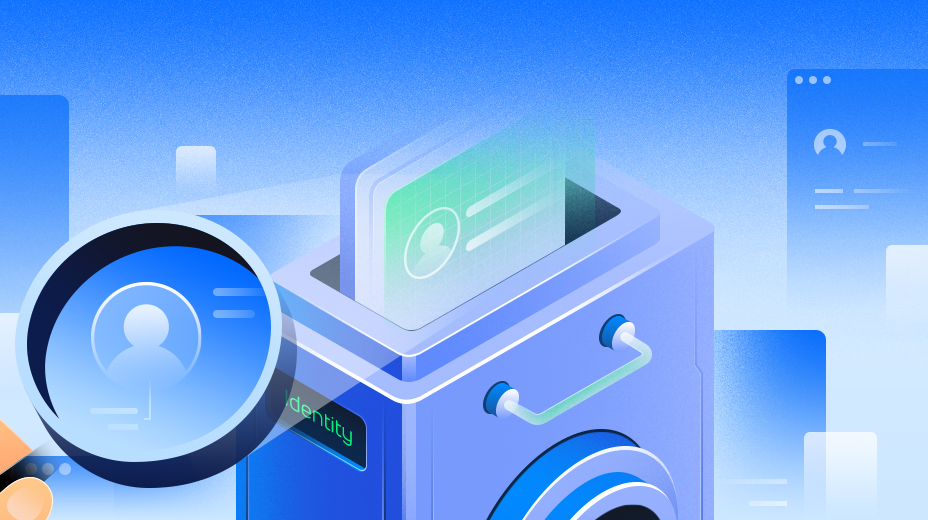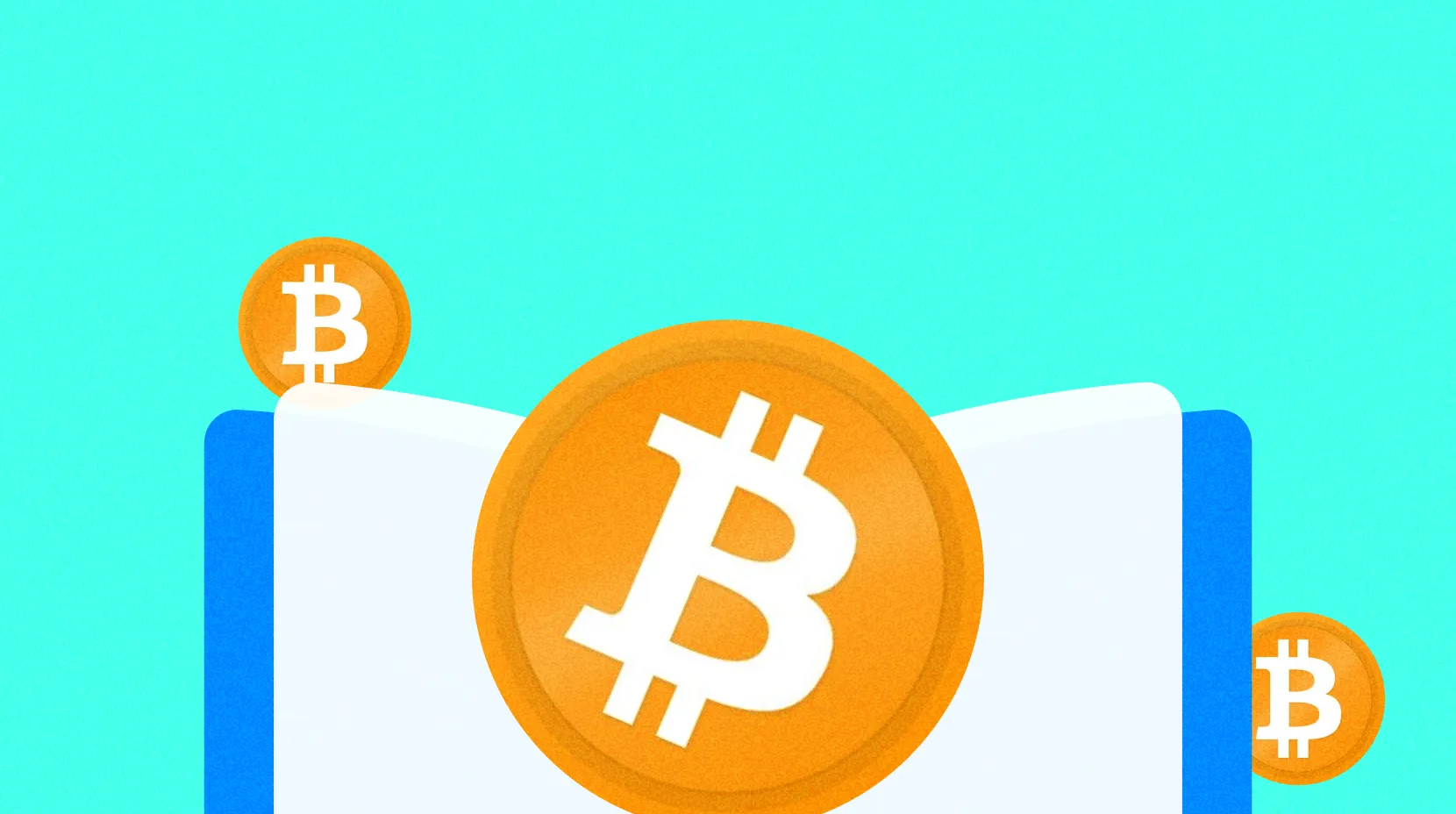Identité et sécurité numériques
Dans le module précédent, nous avons abordé le concept de blockchain appliqué à la chaîne d'approvisionnement et à la logistique. Dans ce module, nous examinerons l'utilisation de la technologie blockchain dans la gestion de l'identité et de la sécurité numériques. Les sujets abordés comprendront l'utilisation de la blockchain pour le stockage sécurisé des données, la vérification de l'identité numérique et le contrôle d'accès.
L'identité numérique sur la blockchain
Les identités numériques deviennent de plus en plus importantes à mesure que nos vies et nos transactions se déplacent en ligne. Ils offrent un moyen pratique et sûr d'identifier et d'authentifier les personnes, ce qui permet aux organisations de s'assurer qu'elles traitent avec la bonne personne et de vérifier son identité. La définition de l'identité numérique est "la représentation d'une personne ou d'une organisation dans le monde numérique", qui comprend généralement des informations telles que le nom, l'adresse, la date de naissance, l'adresse électronique et d'autres détails personnels, ainsi que des données biométriques telles que les empreintes digitales et la reconnaissance faciale. En bref, à mesure que de plus en plus d'aspects de notre vie se déplacent en ligne, l'identité numérique devient de plus en plus importante et sera bientôt utilisée à des fins diverses. L'identité numérique servira de moyen d'identification pour l'accès aux prêts bancaires, l'achat ou la vente d'actifs, l'accès au système de santé, etc. La question que nous devons nous poser est évidente mais extrêmement importante : les entités publiques ou privées seront-elles en mesure de gérer et de stocker nos identités numériques de manière sûre et correcte ?
La technologie blockchain peut également être très bien appliquée au secteur de l'identité numérique, car elle est capable de stocker des données à travers un réseau d'ordinateurs, plutôt que dans un référentiel unique et central. Cela renforce la sécurité et la confidentialité et rend les données moins vulnérables au vol ou à la modification, par rapport aux systèmes traditionnels de gestion centralisée de l'identité. Lorsque nous confions nos données à des entités centralisées, nous devons être conscients que leurs systèmes risquent en permanence d'être piratés et que les informations privées des citoyens et des entreprises peuvent être perdues, involontairement ou volontairement, et se retrouver entre les mains d'individus malveillants. L'une des plus grandes violations de données de l'histoire récente a été celle d'Equifax en 2017. Equifax, l'une des plus grandes agences d'évaluation du crédit au monde, a été victime d'une violation qui a entraîné le vol d'informations personnelles et financières sensibles d'environ 147 millions de personnes, uniquement aux États-Unis. Cet événement a mis en évidence la nécessité pour les entreprises de prendre au sérieux la sécurité des données et d'investir dans les mesures nécessaires pour protéger les informations sensibles qu'elles détiennent. Des progrès ont été réalisés, mais des pertes de données ont continué à se produire dans toutes les régions du monde. La leçon à tirer est qu'une centralisation excessive crée un point de défaillance unique.
L'un des principaux avantages de l'utilisation de la blockchain pour l'identité numérique est qu'elle élimine le besoin d'intermédiaires pour vérifier l'identité d'une personne ou d'une organisation. Au lieu de cela, le réseau blockchain peut être utilisé pour vérifier l'identité d'un utilisateur sur la base d'une combinaison de facteurs, tels que les clés publiques, les données biométriques et d'autres informations stockées sur la blockchain. Cela crée un système plus efficace et plus sûr pour la gestion des identités, puisque celles-ci ne sont pas contrôlées par une seule entité. Le fait d'avoir votre identité numérique sur votre portefeuille privé ne peut que vous apporter des avantages, à condition que vous fassiez attention à la manière de l'utiliser. Le respect de la vie privée est extrêmement important, mais le prix à payer est un niveau plus élevé de sécurité personnelle.
En conclusion, l'utilisation de la blockchain pour la gestion des identités numériques offre un certain nombre d'avantages, notamment une sécurité, une confidentialité et une efficacité accrues. À mesure que la technologie continue de mûrir et de gagner en popularité, il est probable que nous verrons de plus en plus de cas d'utilisation innovants pour l'identité numérique sur la blockchain.
Sécurité basée sur la blockchain
L'un des principaux avantages de la blockchain en matière de sécurité est qu'elle rend beaucoup plus difficile l'altération ou la falsification des données, car toute modification de la blockchain doit être effectuée sur l'ensemble du réseau d'ordinateurs. Cela permet d'assurer un haut degré d'intégrité et de cohérence des données stockées sur la blockchain. Prenons l'exemple du bitcoin : son réseau est tellement vaste et distribué dans le monde entier qu'une attaque sur le réseau est actuellement considérée comme impossible. En théorie, c'est possible, mais il faudrait que presque toutes les nations s'unissent et investissent d'énormes capitaux pour essayer de contrôler la majorité des nœuds Bitcoin, ce qui est très improbable. Grâce à son utilisation de méthodes cryptographiques, telles que les signatures numériques et le chiffrement à clé publique, la blockchain sécurise les transactions et protège les données des utilisateurs, leur offrant un niveau élevé de confidentialité et de respect de la vie privée car leurs données financières et personnelles sont sécurisées par des méthodes cryptographiques avancées.
Si l'on réfléchit bien à la manière dont certains services publics ou gouvernementaux sont gérés, on comprend tout de suite la nécessité d'inclure des technologies avancées comme la blockchain. Vous trouverez ci-dessous deux exemples très importants :
- Systèmes de vote sécurisés : La technologie Blockchain peut fournir un moyen sûr et transparent d'enregistrer et de compter les votes, ce qui rend difficile la manipulation des résultats par qui que ce soit. Grâce à la technologie blockchain, les électeurs peuvent être sûrs que leur vote a été enregistré avec précision et que les résultats des élections sont fiables ;
- Amélioration de la transparence des organes gouvernementaux : En utilisant la blockchain pour suivre les dépenses gouvernementales, il devient plus facile de détecter et de prévenir les fraudes, les gaspillages et les abus. En outre, la technologie Blockchain peut être appliquée pour développer des procédures de passation de marchés sûres et ouvertes, en diminuant la possibilité de corruption et en augmentant le niveau de concurrence des appels d'offres.
Soins de santé
L'application de la technologie blockchain aux soins de santé a le potentiel de révolutionner le secteur en améliorant la sécurité, l'efficacité et l'accessibilité des données médicales. Les soins de santé englobent un large éventail de produits et de services, notamment la réadaptation, les tests de diagnostic, le traitement et la gestion des maladies chroniques, et se réfèrent généralement au maintien et à l'amélioration de la santé physique et mentale par le traitement des maladies et des blessures. L'amélioration de la santé et du bien-être des personnes, ainsi que l'accès des personnes dans le besoin à des services et traitements médicaux de haute qualité, constituent l'objectif ultime des soins de santé.
La technologie blockchain peut renforcer la sécurité des données des patients, qui sont normalement stockées à un seul endroit, ce qui en fait une cible tentante pour les cyberattaques. La blockchain rend beaucoup plus difficile l'accès ou la modification des données des patients par des parties non autorisées, car elle les stocke de manière décentralisée et cryptée. En outre, il permet aux patients d'accéder à leurs propres dossiers médicaux et aux prestataires de soins de santé d'accéder aux dossiers dont ils ont besoin pour prodiguer leurs soins. Les patients ont ainsi davantage de contrôle sur leurs informations de santé personnelles. En outre, les essais cliniques et la recherche peuvent être améliorés en utilisant la blockchain pour stocker et gérer en toute sécurité les données des essais cliniques. Cela améliore la précision et l'intégrité des données et facilite le partage sécurisé des informations entre les chercheurs, ce qui permet de réaliser des essais cliniques plus rapides et plus précis.
En conclusion, l'application de la technologie blockchain dans les soins de santé présente un grand potentiel pour révolutionner le secteur et améliorer la sécurité et l'accessibilité des données médicales. Toutefois, la concrétisation de ces avantages nécessite une approche réfléchie qui garantisse une utilisation responsable et éthique de cette technologie. Les prestataires de soins de santé doivent être éduqués et formés pour adopter et utiliser efficacement cette technologie révolutionnaire, et une normalisation dans le secteur est nécessaire.
Faits marquants
Si nous stockons nos identités numériques sur la blockchain, nous réduirons considérablement le risque qu'elles soient perdues ou utilisées à des fins illicites, car nous en serions les véritables propriétaires. Les entités trop centralisées représentent un risque pour la vie privée et la conservation de nos informations.
La blockchain peut améliorer considérablement la sécurité en général, ainsi que certains systèmes administratifs. Il peut facilement être utilisé pour permettre aux événements de vote d'être 100% exacts et non manipulés. En outre, elle peut prévenir les tentatives de fraude ou de corruption de la part des entités publiques.
Les systèmes de soins de santé peuvent également être améliorés, en renforçant la protection de la vie privée des patients et l'efficacité globale de l'échange d'informations, par exemple, d'un hôpital à l'autre.
Conclusion
Cette partie du cours vise à vous montrer d'autres cas d'utilisation importants de la blockchain, en commençant par la question importante de l'identité numérique et en la reliant ensuite aux systèmes gouvernementaux et de soins de santé. Dans le prochain module, nous allons aborder le sujet de la façon dont la blockchain révolutionne le secteur bancaire et financier.





